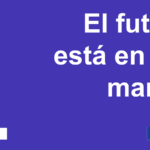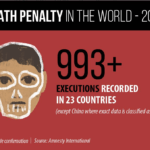The DIGIsurvey, a keystone of the DIGISER project was launched on 8 June 2021. DIGISER is a research project under the ESPON programme carried out by OASC, IS-Practice, POLIMI, CPC, and Deloitte.
Data on how cities, towns and rural areas across Europe tackle digital innovation is scarce. The Digital Economy and Society Index (DESI) provides an insight on the national level, but a DESI for the local level does not exist. For some years, the CoR has been working with its partners on the LORDI (Local and Regional Digital Indicators) framework, which will now be filled by data from this DIGIsurvey. The DIGIsurvey aims at measuring the digital innovation of governance and public service provision on the local level.
Towards effective local decision-making
Local authorities need relevant data based on the different needs and setup of their public services to make well-informed decisions on the best possible actions to boost digital transformation. “This is the place where the DIGISER project with its DIGISurvey has shown to be effective: the DIGISurvey will gather data from cities and municipalities to provide decision-makers with relevant and comparable information on digital transformation in their constituencies and to inspire digital transformation processes,” Michael Murphy, Chair of the ECON commission of the European Committee of the Regions, points out.
“The Covid-19 pandemic has exposed the vulnerability of our society to unforeseen events. Nevertheless, it has also shown that those who had been relying on digital solutions could better face the negative impact of the economic shock. Therefore, the Living-in.EU initiative, a movement to boost sustainable digital transformation in cities and communities in the EU, is of key importance for the EU to promote the transition towards a cohesive, digital Europe, where no one is left behind,” he adds.
Towards better policies
The results of the DIGIsurvey will help mayors, local councillors and elected politicians deliver new and effective digital solutions to their citizens. The data gathered will provide local administrations information on best practices that cities across Europe have already adopted, as well as insight into projects that did not deliver the expected results. More importantly, the results of the survey will help inform national and EU policies and support programmes, based on input received from the local level.
Martin Gauk, Project Coordinator of ESPON DIGISER, explains that good metrics can direct better policies. “In order to promote digital transformation and the scaling up of digital innovation in cities and communities, we need to know what works, what doesn’t and why. And that means turning to measurements and metrics. In order to boost digital transformation through a ‘European Way’ where digital solutions help to create places where people enjoy living and working, we have to have more discussion on how to design policies that would support this goal.”







Leave a Reply